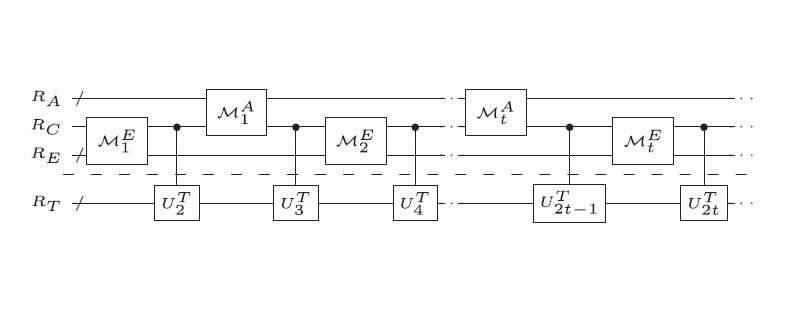October 17, 2016 feature
How quantum effects could improve artificial intelligence

(Phys.org)—Over the past few decades, quantum effects have greatly improved many areas of information science, including computing, cryptography, and secure communication. More recently, research has suggested that quantum effects could offer similar advantages for the emerging field of quantum machine learning (a subfield of artificial intelligence), leading to more intelligent machines that learn quickly and efficiently by interacting with their environments.
In a new study published in Physical Review Letters, Vedran Dunjko and coauthors have added to this research, showing that quantum effects can likely offer significant benefits to machine learning.
"The progress in machine learning critically relies on processing power," Dunjko, a physicist at the University of Innsbruck in Austria, told Phys.org. "Moreover, the type of underlying information processing that many aspects of machine learning rely upon is particularly amenable to quantum enhancements. As quantum technologies emerge, quantum machine learning will play an instrumental role in our society—including deepening our understanding of climate change, assisting in the development of new medicine and therapies, and also in settings relying on learning through interaction, which is vital in automated cars and smart factories."
In the new study, the researchers' main result is that quantum effects can help improve reinforcement learning, which is one of the three main branches of machine learning. They showed that quantum effects have the potential to provide quadratic improvements in learning efficiency, as well as exponential improvements in performance for short periods of time when compared to classical techniques for a wide class of learning problems.
While other research groups have previously shown that quantum effects can offer improvements for the other two main branches of machine learning (supervised and unsupervised learning), reinforcement learning has not been as widely investigated from a quantum perspective.
"This is, to our knowledge, the first work which shows that quantum improvements are possible in more general, interactive learning tasks," Dunjko said. "Thus, it opens up a new frontier of research in quantum machine learning."
One of the ways that quantum effects may improve machine learning is quantum superposition, which allows a machine to perform many steps simultaneously, improving the speed and efficiency at which it learns.
But while in certain situations quantum effects have the potential to offer great improvements, in other cases classical machine learning likely performs just as well or better than it would with quantum effects. Part of the reason for the difficulty in determining how quantum effects can improve machine learning is due to the unique set of challenges involved, beginning with the basic question of what it means to learn. Such a question becomes problematic, the scientists explain, since the machine and its environment may become entangled, blurring the boundary between the two.
Overall, the researchers expect that the systematic approach proposed here, which encompasses all three of the main branches of machine learning, will lead to the first steps in a complete theory of quantum-enhanced learning.
"While the initial results are very encouraging, we have only begun to investigate the potential of quantum machine learning," Dunjko said. "We plan on furthering our understanding of how quantum effects can aid in aspects of machine learning in an increasingly more general learning setting. One of the open questions we are interested in is whether quantum effects can play an instrumental role in the design of true artificial intelligence."
More information: Vedran Dunjko, Jacob M. Taylor, and Hans J. Briegel. "Quantum-Enhanced Machined Learning." Physical Review Letters. DOI: 10.1103/PhysRevLett.117.130501
Journal information: Physical Review Letters
© 2016 Phys.org




















